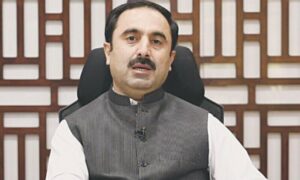ISLAMABAD: The Central Monitoring Unit (CMU) of the federal government has deplored disproportionate presence of non-professional and non-independent members in the boards of directors at state-owned entities (SOEs) and an absence of effective audit and monitoring mechanisms in these organisations.
The CMU has suggested adoption of international financial and audit standards to address governance weaknesses and financial losses to the nation.
“Unfortunately, many SOEs still have a disproportionate number of non-independent directors, particularly in critical sectors such as power, infrastructure, and gas,” said the CMU in its analysis of the performance of SOEs for fiscal year 2023-24.
It pointed out that this imbalance was resulting in the dominance of insider perspectives where the management’s influence remains unchecked and critical decisions favour short-term or specific stakeholder groups over the SOEs’ long-term viability because of reduced accountability.
The CMU has been created in the ministry of finance under the requirements of the IMF programme to keep track of performance of all SOEs and their impact on budget to facilitate the government in phasing them out to the private sector or to close them down.
To address this challenge, the CMU suggested SOEs ensure that at least 50 per cent of board members are independent as such individuals can enhance strategic oversight, improve risk management, and align an organisation’s objectives with public and investor expectations.
Pointing out key corporate governance issues in SOEs, the CMU emphasised that the effectiveness, accountability, and transparency hinged on addressing critical governance challenges. These challenges, if left unresolved, can lead to sub-optimal performance, increased fiscal risks, and erosion of public trust.
It also highlighted that these companies undergo inadequate monitoring and evaluation of board performance even though effective governance required consistent monitoring and evaluation of the board.
“The current frameworks in many SOEs are underdeveloped, leading to gaps in accountability and performance oversight”.
Some of these shortcomings include weak evaluation metrics given the absence of clear key performance indicators (KPIs) for board performance and limited focus on strategic priorities.
As a result, boards of directors “often fail to prioritise long-term planning and compliance”.
Therefore, it called for developing a monitoring matrix that should include sector-specific KPIs and regular performance assessments. “This matrix should be standardised across SOEs in sectors such as power, gas, and infrastructure to ensure consistency and drive board development initiatives,” it said.
The CMU expressed displeasure over the lack of comprehensive database for prospective board members. It said that “the absence of a well-maintained database of qualified board members is a major bottleneck in ensuring competent and diverse governance”.
The lack of such a resource often results in delays in board appointments and compromises on the quality of directors.
To address this challenge, the CMU called for development of centralised database of prospective board members featuring diverse expertise of individuals from finance, law, engineering, industry-specific fields, and governance.
Published in Dawn, February 21st, 2025
- Desk Reporthttps://foresightmags.com/author/admin/











